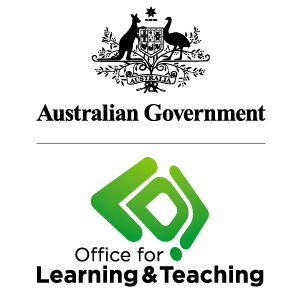OnTask: Scaling the Provision of Personalised Learning Support Actions to Large Student Cohorts
The OnTask project has two aims. The first is to improve the quality of student learning in large cohorts by scaling the deployment of Personal Learning Support Actions (PLSAs) within Australian HE institutions. We define PLSAs as any instructor led intervention that is designed to help students in their learning journey by recognising and acknowledging their strengths and weaknesses, and suggesting steps or mentorship interventions that are relevant to their particular situation. This term encompasses conventional actions such as the provision of feedback as well as content personalisation, advice on learning strategies, content recommendations, and visualisations. This project proposes a methodological shift in which students in large cohorts will receive frequent, personalised and relevant learning support actions derived from the combination of state‐of‐the‐art learning analytics approaches and the expertise of the instructors. The second aim of the project is to increase the maturity of learning analytics deployments in educational institutions by providing evidence‐based guidelines to move from reduced experimentations into organisational transformations.
Learn more about the OnTask project…
Beyond the LMS: The Connected Learning Analytics Toolkit
Connected Learning is a modern pedagogical approach holding that knowledge and learning is distributed across a social, conceptual network. It holds that when people forge, negotiate and nurture connections for themselves (between people, information, knowledge, ideas and concepts), learning is more powerful and sustainable.
Ideally, such learning could happen anywhere. People would create Personal Learning Networkswithin a Community of Inquiry. They would use whatever tools they consider relevant to this process, and connect with whoever they consider relevant to their network… However, this open connectivism is difficult to achieve in our current educational paradigms. How can we help people to teach “in the wild”? Learning Management Systems maintain a dominant position in the education sector, which means that technical support is generally provided only for those teachers who choose safety over openness.
It doesn’t matter that our students tend to wander off into the wild.. a LMS might provide discussion fora, wikis, file sharing services, but our students are often not even there. They tend to favour tools that they are using already, things like Google drive, Facebook, Dropbox, StackExchange and others. This affects what Learning Analytics (LA) we can carry out, we only see a tiny portion of their behaviour, and they almost never get to see any data about their own learning behaviour. LA is a capability usually provided by LMS vendors, and this makes it difficult to provision LA capabilities beyond the LMS.
The CLA toolkit is one solution that we are creating in an attempt to fill this gap. It helps students and teachers to harvest data about their activities in standard social media environments, and then provide immediate feedback and reports.
Learn more about learning Beyond the LMS…
Learning Analytics in Australian Higher Education
This project, in collaboration with several other universities, has gathered quantitative and qualitative data from a range of stakeholders about their perceptions regarding learning analytics, its potential for the higher education sector, and possible affordances and constraints. Interviews were held with an international panel of learning analytics research experts, learning analytics vendors, international institutional senior managers, and Australian institutional senior managers. A second strand conducted a Delphi like process that elicits opinions on what is required to create sustainable, high impact learning analytics.
The data are currently being analysed, and the final report is due out mid-2015. This report provides a good snapshot of the state of learning analytics in Australian HE, and an interesting account is emerging around how stakeholders conceive of “the student retention problem”, and hence, what they consider to be appropriate roles for analytics.
Learn more about the Australian Higher Education Analytics project…
